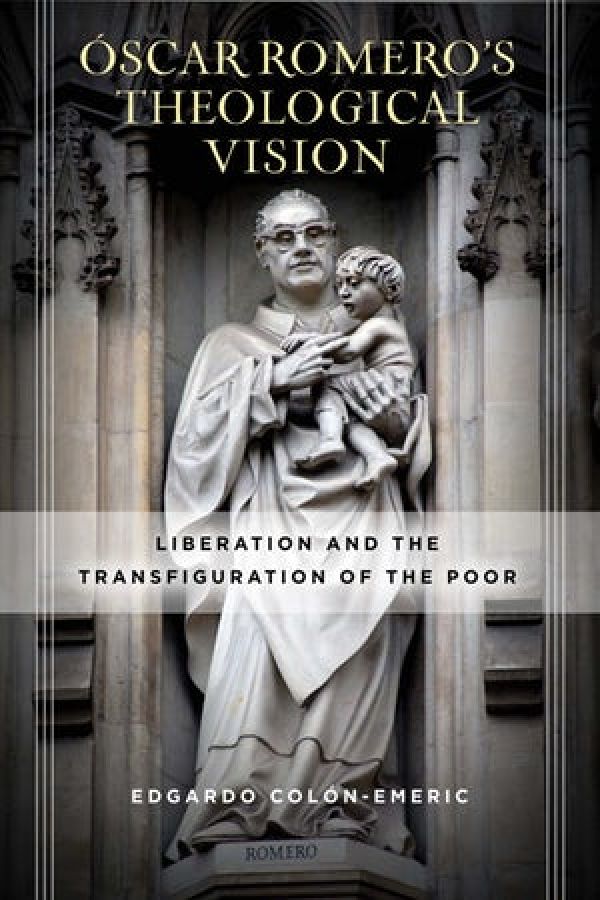Edgardo A. Colón-Emeric, the Irene and William McCutchen Associate Professor of Reconciliation and Theology at Duke Divinity School, has written a new book exploring the life, thought, and theological vision of Óscar Romero, who was just canonized as a saint by Pope Francis.
The book, Óscar Romero’s Theological Vision: Liberation and the Transfiguration of the Poor, was published by the University of Notre Dame Press in October. In one of the first full-length investigations into Romero’s theology, Colón-Emeric explores how the mystery of transfiguration was the focus of the saint’s life and theological work.
Romero, the former Archbishop of San Salvador who was assassinated as he celebrated Mass in El Salvador nearly four decades ago, was canonized Oct. 14 and is considered a father of liberation theology, which interprets biblical scripture through the plight of the poor. His theological vision is most succinctly expressed by his saying, “Gloria Dei, vivens pauper” (“The glory of God is the poor who lives”). Romero believed that God’s glory was first revealed through Christ to a landless tenant farmer, a market woman, and an unemployed laborer, and they received the power to shine from the church to the world.
Colón-Emeric’s study is an exercise in what Latino/a theologians call ressourcement from the margins, or a return to theological foundations. One of the first Latin American church fathers, Romero’s theological vision is a sign of the emergence of Christianity in the Global South from “reflection” church to “source” church.
The hope for this study is that scholars in the fields of theology, religious studies, and Latin American studies will be captivated by the humble Romero’s doctrine and inspired to think more clearly and act more decisively in solidarity with the poor.
Colón-Emeric, who was named the faculty director of the Center for Reconciliation at Duke Divinity School earlier this year, was the first Latino to be ordained as an elder in the North Carolina Conference of the United Methodist Church. A native of Puerto Rico, he was the founding pastor of Cristo Vive UMC in Durham, N.C., and of the Hispanic House of Studies at Duke Divinity School. He directs a training program for Central American Methodist pastors in El Salvador and is a member of national and international dialogues between Methodists and Catholics.
